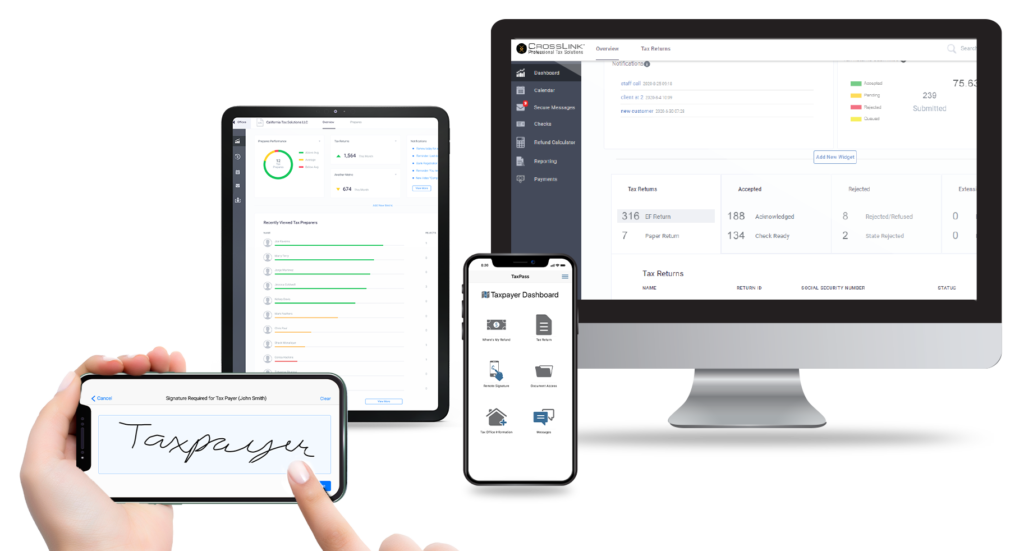Used and Commercial Clean Vehicle Credits
The Inflation Reduction Act included two new credits for clean vehicles. They are the Credit for Previously Owned Clean Vehicles and the Commercial Clean Vehicle Credits. Both credits go into effect in 2023 and are available through 2032.
Here are the details for each of these two credits:
Used Clean Vehicle Credit
A taxpayer who purchases an eligible used clean vehicle in 2023 may be eligible for the new nonrefundable Credit for Previously Owned Clean Vehicles. The credit is 30% of the vehicle’s purchase price or $4,000 whichever is less.
Other details for this credit:
- Credit is only allowed if the taxpayer’s current or preceding year’s modified AGI does not exceed:
- $150,000 for Married Filing Joint
- $112,500 for Head of Household
- $75,000 for all other filing statuses
- Credit is allowed for vehicles with a sales price of $25,000 or less with a model year that is at least two years earlier than the calendar year in which the vehicle is sold.
- Credit can only be claimed for vehicles sold by a dealer and on the first transfer of a qualifying vehicle.
- Credit can be claimed once every three years.
- The taxpayer must purchase the vehicle for their own personal use in the United States and cannot buy it for resale.
- Vehicle must be an eligible FCV or plug-in EV with a battery capacity of at least 7 kilowatt hours.
For more details see the following pages on the IRS website:
- Used Clean Vehicle Credit
- Manufacturers and Models of Qualifying Used Clean Vehicles
- FAQs About Claiming the Previously-Owned Clean Vehicle Credit
- FAQs About Eligibility Rules for the Previously-Owned Clean Vehicle Credit
- FAQs About the Income and Price Limitations for the Previously-Owned Clean Vehicle Credit

Commercial Clean Vehicle Credit
A taxpayer who purchases a qualified commercial clean vehicle may be able to claim the new nonrefundable Commercial Clean Vehicle Credit.
The credit is calculated as the lesser of:
- 15% of the vehicle’s purchase price for hybrid electric vehicles
- 30% of the vehicle’s purchase price for electric or fuel cell vehicles
- The incremental cost of the vehicle relative to an equivalent internal combustion engine vehicle
The maximum credit that may be taken on a qualifying vehicle is:
- $7,500 for vehicles weighing less than 14,000 pounds (Class 1 – 3)
Or
- $40,000 for vehicles weighing 14,000 pounds or more (Class 4 and above)
Other details for this credit:
- Businesses and tax-exempt organizations qualify for the credit.
- Qualified vehicle must be new, used in the business, made by a qualified manufacturer, and used primarily in the U.S.
- Eligible electric vehicles must have a battery capacity of not less than 15 kilowatt hours (7 kilowatts for vehicles weighing less than 14,000 pounds) and be charged by an external source of electricity.
- Eligible fuel cell vehicles are those that meet the requirements under IRC 30B(b)(3)(A) and (B)
- To be eligible a vehicle must be made by a qualified manufacturer who has a written agreement with and provide periodic reports to Treasury.
- This credit cannot be combined with the Clean Vehicle Tax Credit.
- There is no limit on the number of qualifying vehicles that a business can claim this credit each year.
- Any unused credit may be carried forward as a general business credit.
- Vehicle must be used by the taxpayer’s business
For more details see the following pages on the IRS website:
CrossLink Professional Tax Solutions

CrossLink is the industry’s leading professional tax software solution for high-volume tax businesses. Built based on the needs of busy tax offices and mobile tax preparers that specialize in providing their taxpayer clients with fast and accurate tax returns, CrossLink has been a trusted software solution since 1989. CrossLink’s in-depth tax calculations, advanced technological features, and paperless solutions allow you to prepare the most complicated tax returns with confidence and ease while providing your customers an unparalleled experience.


